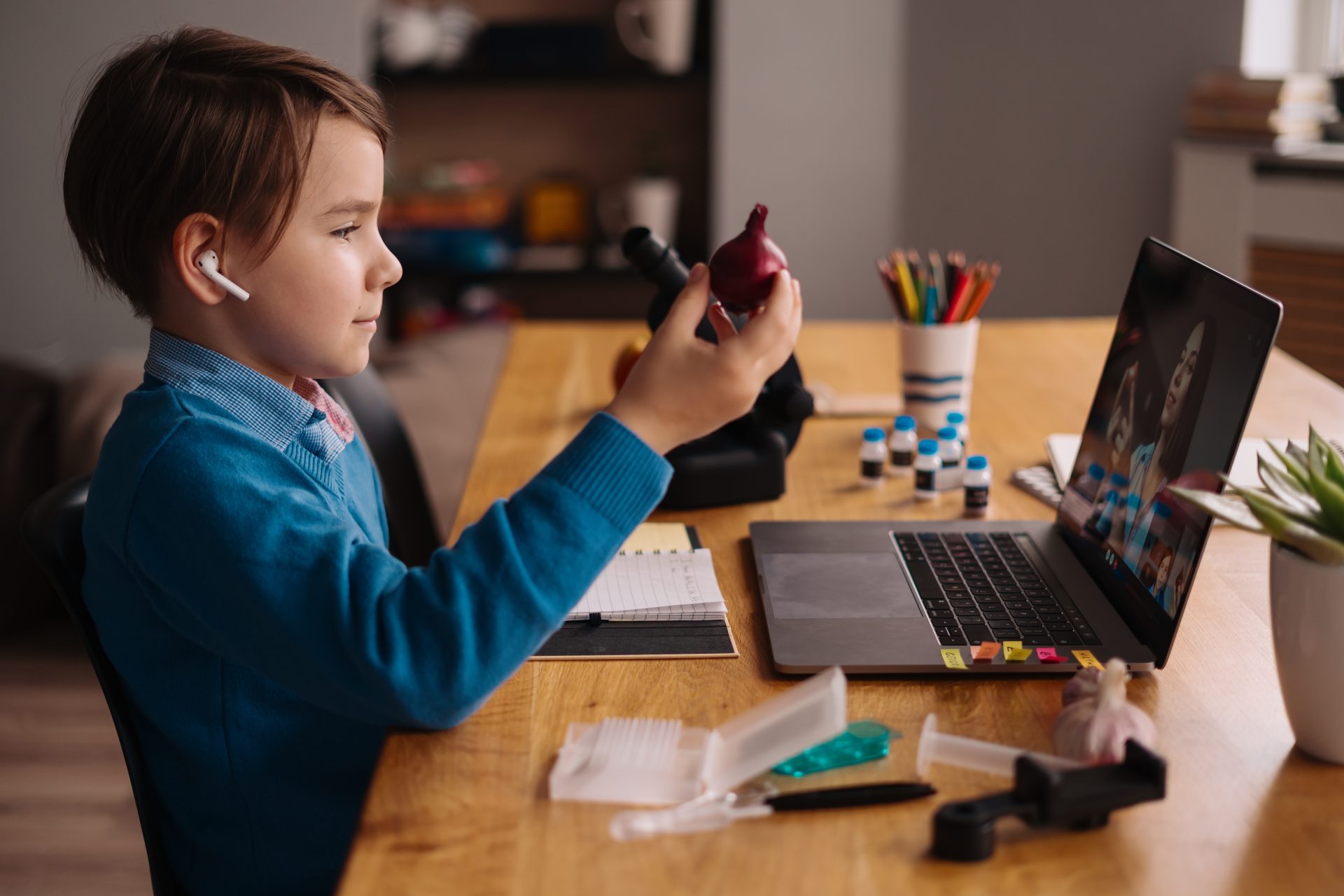Contents
Online education has grown quickly in recent years, especially after COVID-19. It gives students more freedom. This type of education is helpful for children with special needs. Online education allows students to receive the support they need, no matter where they are.

Online special education is a form of remote learning. The format is designed to meet the individual needs of students with disabilities. This type of education provides specialized instruction and resources. Teachers with special training play a key role in delivering these lessons. Let’s look at who is an online special education teacher.
What Does an Online Special Education Teacher Do?
An online special education teacher supports students with disabilities virtually. Educator’s role is to provide educational opportunities for students with unique needs. Teachers use technology and specific methods to modify lessons and learning tools. Here’s what the special education teacher does.
Identifying Student Needs
Teachers review each student’s abilities and challenges. Educators consider learning preferences. Individualized education plans (IEPs) are created based on these preferences. The plans address the specific needs of each student.
Correcting Curriculum
Teachers modify lessons to align with each child’s learning style and needs. They adjust content and teaching methods to make lessons accessible for every student. The methods help students understand the material and move forward more successfully.
Providing One-on-One Support
Teachers use various tools to interact with students like Zoom. Educators stay connected with students 24/7 and assist with various issues. Teachers always provide comprehensive support to students with special needs. This support helps them achieve their goals step by step.

Collaborating with Parents
Special education teachers work a lot with parents. Educators give advice to families on supporting learning at home. This collaboration helps parents to give assistance to their children with lessons and in everyday life.
Tracking Progress
Teachers monitor students’ progress through tests and assignments. Educators correct their methods when needed, based on these results.
Using Assistive Technology
Students with special needs benefit from tools like speech-to-text software, screen readers, or magnification tools. Teachers guide students in using these tools properly. This helps students interact with the material more easily. Read about helpful tools for special education here.
Giving Emotional Support
Teachers focus on building a positive learning environment, in addition to academic instruction. Educators offer guidance and emotional support for students. This helps boost students’ confidence and motivation.
How to Become an Online Special Education Teacher?
Here are the main steps to become an online special education teacher:
- Earn a degree in special education or a related field
- Develop hands-on experience through a teaching practicum
- Meet the state requirements to teach special education
- Build strategies in a physical classroom before moving online
- Check if additional online teaching certification is required
- Become familiar with online teaching tools and platforms
- Stay updated by attending workshops or taking additional courses. Learn more about special education training for teachers here
How to Find Students?
Finding students as an online special education teacher is a challenging task. The search is easier with the right strategy. Here are effective methods to help teachers find students.

Create a Professional Website
A professional website is a teacher’s main platform for attracting students. There are details about the teacher’s qualifications, services, and teaching philosophy on the website. Reviews or success stories help build trust with potential clients.
Use Social Media Platforms
Social media platforms like Facebook, Instagram, and LinkedIn are effective tools for reaching parents. These tools help to share valuable content for parents, such as tips for supporting children with special needs. Joining relevant groups and communities helps find families seeking specialized education.
Sign Up on Educational Platforms
Signing up on platforms like Wyzant, Outschool, or TutorMe connects teachers with children. These platforms offer simple tools for scheduling and payments. A clear profile with experience and qualifications helps attract the right students.
Network with Schools and Educators
Connecting with schools, special education departments, and professionals lead to helpful referrals. Attending events, webinars, or conferences grows a professional network. Schools collaborate with online teachers, providing more opportunities for teaching special needs students.
Work with Parent Support Groups
Many parents of children with special needs join support groups. Offering resources and joining discussions in these groups help connect with more families. Being involved regularly helps build trust within the community.
Advertise Locally
Local advertising helps reach parents who don’t know about online special education. Handing out flyers in schools, libraries, and community centers helps inform the community. Ads in local newspapers or newsletters help families to know about the services.
Legacy Online School for Teachers
“The quality of the materials we use to teach is exceptional. The curriculum is well-designed and provides valuable learning resources for both teachers and students. The diverse student body also adds to the richness of the learning experience. Interacting with students from different backgrounds enhances cultural understanding and contributes to better learning outcomes”
Teacher’s review, Indeed

Nearly 240 million children around the world today live with some form of disability, according to UNICEF. This number highlights the increasing demand for online special education teachers.
Legacy Online School gives special education teachers the opportunity to educate students through an accredited online platform. Our school is accredited by the Western Association of Schools and Colleges (WASC). The program follows state-approved standards to meet the diverse needs of students with disabilities.
The school offers professional support and collaboration opportunities for students. Teachers have access to the resources they need to help every student succeed.
Useful Resources for Online Special Education
Assistive Technology Tools
- Learning Ally
- Kurzweil 3000
- Bookshare
- Dragon Professional
- Ghotit Real Writer
Online Learning Platforms
- Legacy Online School
- Khan Academy
- ABCmouse
- IXL
- Time4Learning
Curriculum and Instructional Support
- N2Y
- Boardmaker
- Epic!
Parent and Teacher Resources
- Understood.org
- The IRIS Center
- Wrightslaw
- National Center for Learning Disabilities (NCLD)
- ADDitude
Professional Development
- Edutopia
- Council for Exceptional Children (CEC)
- The Inclusive Class
- CAST
- LD Online











